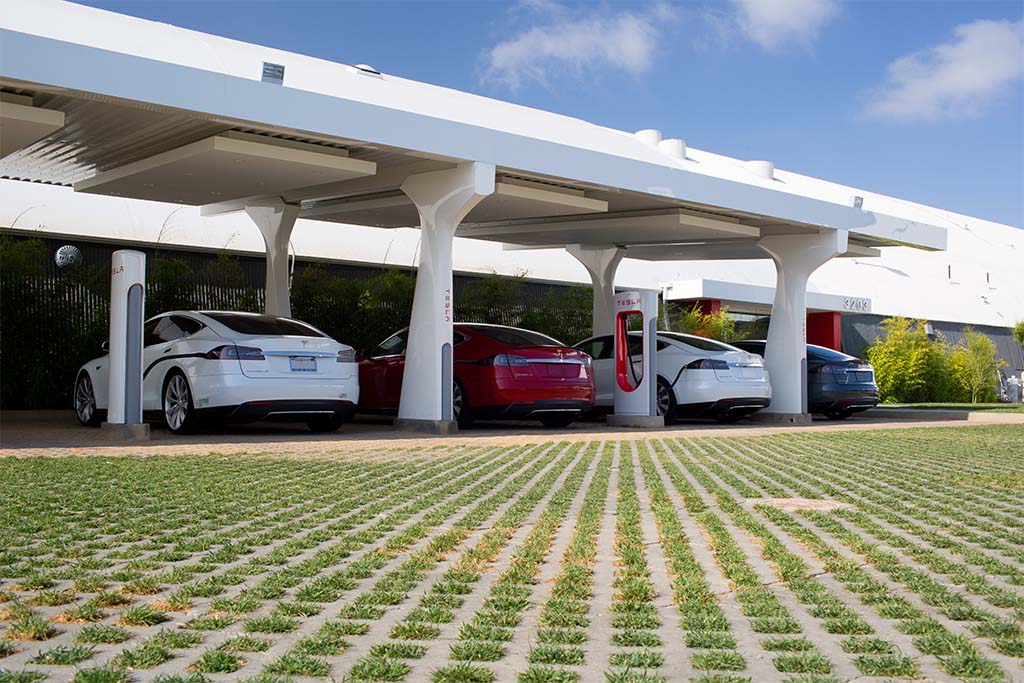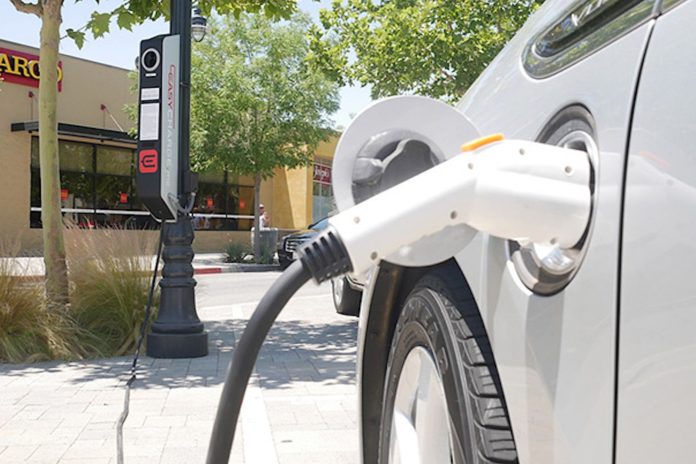While a growing number of Americans say they are “likely” to consider buying an EV, a new study by J.D. Power warns that “the biggest friction point for consideration” is the availability of reliable public charging.
That’s reflected by internal industry research, Ford Motor Co. officials telling TheDetroitBureau.com that “charger anxiety” has become as much — if not more — of a concern than range anxiety.
While American motorists are increasingly attracted to the range of new EVs coming to market, “The growth in public charging isn’t keeping pace with the rising number of EVs on the road,” said Stewart Stropp, Power’s executive director of EV Intelligence.
More products, higher interest levels
Power’s 2023 U.S. Electric Vehicle Consideration (EVC) Study has some good news for EV advocates. Based on responses by 8,136 U.S. consumers, 61% said they are “overall likely” to purchase an EV, up from 59% a year ago. And 26% said they were “very likely” to consider an EV, up from 24% a year ago.
A number of factors appear to be driving more motorists to consider going electric, starting with the greater choice they now have available to them. The number of long-range models — those delivering at least an EPA-estimated 200 miles per charge — surged from 15 to nearly 50 between late 2021 and the beginning of 2022. And as many as 20 more will reach market this year, according to industry announcements and analyst research. These include domestic models like the Chevrolet Silverado EV pickup and Blazer EV SUV, imports such as the Mercedes-Benz EQE SUV, and startups such as the VinFast VF 8.

All told, there are all-electric products that could serve as “viable” replacements for the vehicles owned by 42% of today’s U.S. motorists, said Power.
The surge in new products is helping heritage manufacturers. While Tesla is the brand EV intenders are most likely to consider, the top three individual models come from what Power describes as “perennial full-line manufacturers.”
Friction factors
There are, however, a number of factors that could slow, even reverse the growing interest in EVs, the research firm noted. These include issues that analysts warn could impact the U.S. auto market overall, such as inflation and rising prices. And there are specific concerns, such as “range anxiety,” long listed as the biggest roadblock to broad consumer acceptance of battery-electric vehicles. But charger anxiety is rapidly growing in its impact.
“With all of these influences shaping today’s EV market, the biggest friction point for consideration is the availability of public chargers,” said Stropp.
Availability isn’t the only problem
And it’s not just the lack of public charging stations but also the fact that many of the places where motorists can plug in may not be operable. A 2022 study by the University of California Berkeley found that only 72.5% of the public chargers in the San Francisco Bay Area where operable at any given time. By comparison, industry data shows that gas pumps generally have an “up time” of as much as 99%.

Charging companies such as ChargePoint, Blink, EVgo and Electrify America say they are rapidly adding new public chargers — and working to increase their reliability. Some automakers are taking things into their own hands. Mercedes-Benz earlier this year announced plans to set up a network of its own stations. And, in recent weeks, both Ford and General Motors have inked deals with Tesla to use that company’s until-now proprietary network of Superchargers, starting in 2024.
The new Power EVC study has mixed news for Tesla. It found the upstart manufacturer to be the brand EV intenders are most likely to consider. But the top three individual all-electric models come from what Power describes as “perennial full-line manufacturers.”
Other factors impacting EV consideration
A variety of factors influence which motorists are more likely to consider EVs, the study revealed:
- California has long been the largest market for EVs in the U.S. and that’s likely to remain so, with 73.1% of respondents saying they’re “overall likely” to buy an electric vehicle, with 40.5% saying they’re “very likely.” New York is second in that category, at 33.7%;
- EV consideration rises among motorists looking to replace their current vehicles, especially if they already own a hybrid or plug-in hybrid;
- The longer the commute the more likely a motorist is “very likely” to consider an EV. Among those driving at least 45 minutes each day, the figure is 35%, but that falls to 21% among those only commuting a daily 15 minutes;
- Experience matters. Among those who have never ridden or driven in an EV, only 12% are “very likely” to consider one, but that rises to 25% among motorists who’ve been EV passengers. And among those who have already owned an EV, 80% are likely to buy or lease one again.
The study also found that Generation Y buyers make up the biggest group when it comes to EV consideration. Fully 72% are “likely” to consider one, with 37% very likely. But Gen Z’s interest is the fastest-growing, especially as more affordable EV products begin to come to market, the study found.

